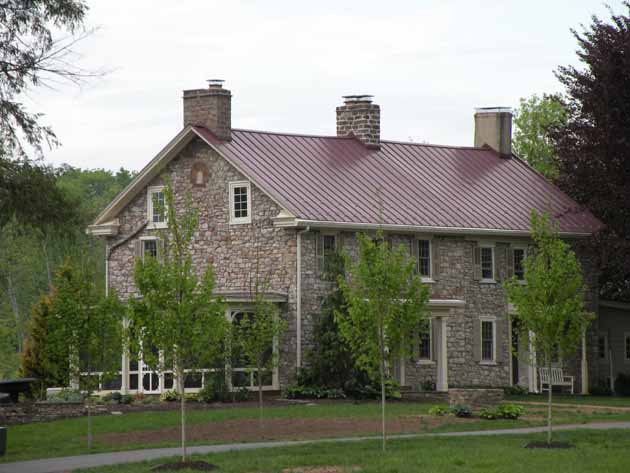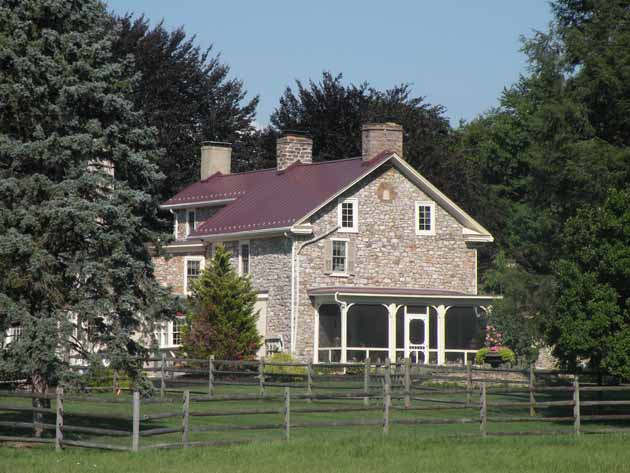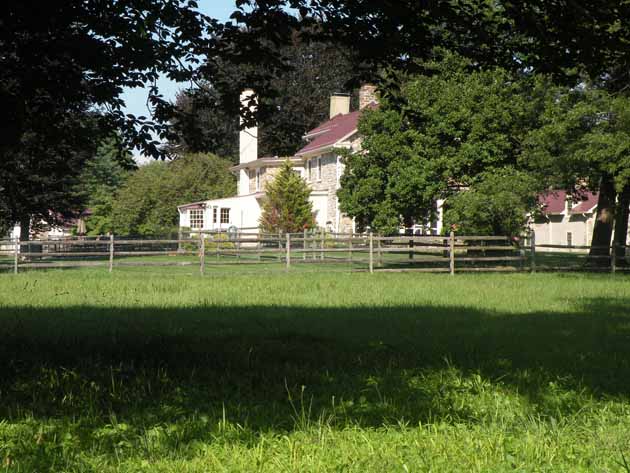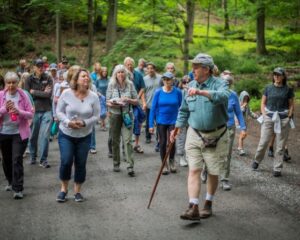William H. Johnson was one of the most important abolitionists in Bucks County. On the one hand, he was a public advocate of abolitionism, participating in the Bucks County Anti-Slavery Society and other openly political groups. His wife Mary (née Paxson) was involved in the Bucks County Anti-Slavery Society as well as the Buckingham Female Anti-Slavery Society. Both were attending the anti-slavery convention at Philadelphia Hall when it was razed by anti-black rioters in May of 1838. William was elected as one of four vice presidents of the Pennsylvania Anti-Slavery Society when the conference reconvened four months later. On the other hand, he was also deeply involved in the covert activities of the Underground Railroad. Fugitives arriving from Norristown and other points west would arrive at his farm in Buckingham, and he would forward them to stations in Solebury. He also took in a number of refugees himself. For example, three unrelated black residents from Maryland are living in his household on the 1850 US Census.
There are at least two cases where his involvement is documented. One is that of William Wright, who escaped with bondage in Maryland with the group of fugitives that included Samuel Scott and Perry Helmsley. William first went to the Johnson home and then moved on to John Ruckman’s home. The second was Rachel Moore, who was a slave near Elkton, Maryland. Edward Magill wrote the story of Rachel being manumitted by her owner, but her six children remained slaves. She succeeded in bringing all six to Bucks County with the help of the Underground Railroad. The family first arrived at the Johnson home. The Johnson family found homes for the four oldest children with the families of Thomas Paxson, Joseph Fell, Edward Williams, and John Blackfan. Rachel and her two youngest children went to the Magill Farm on Aquetong Road.
In addition to the cause of slavery, Johnson was also active in the temperance movement. He was also a prominent educator, serving as Superintendent for Schools in the late 1850s and operating a Lyceum at Buckingham Meeting, which Edward Magill attended.





